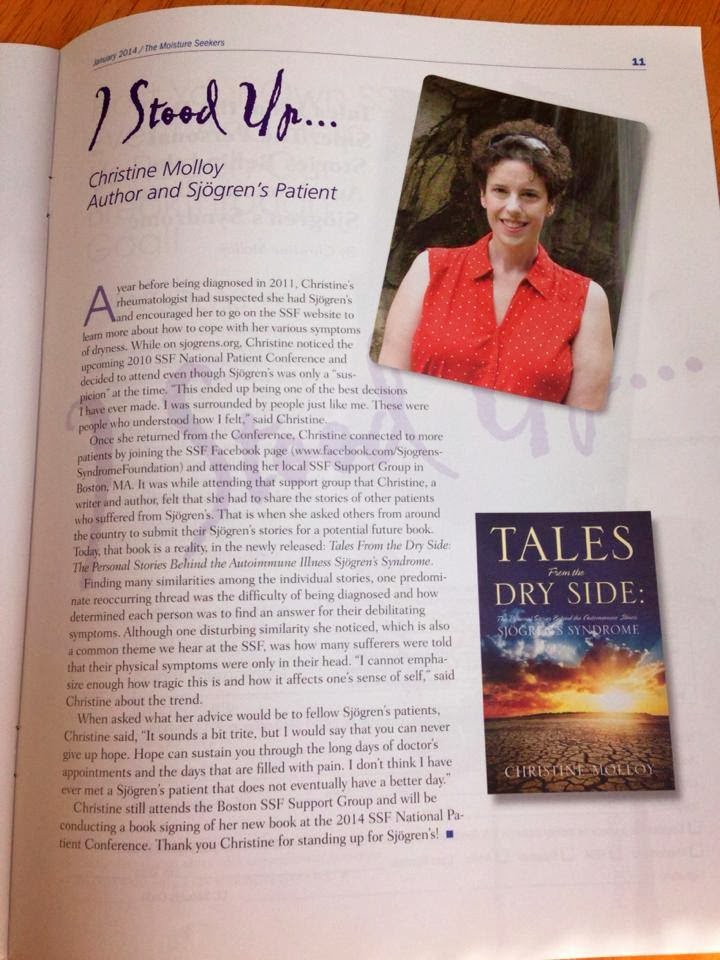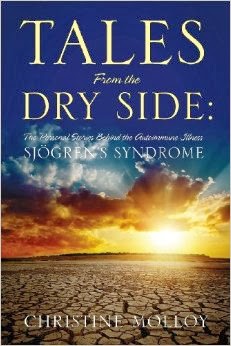Once in a while I post a blog entry about something that I suspect may raise a few brows or cause a bit of a ruckus. Honestly, I think I need to do that more, because I sometimes find myself censoring my writing or what I post in order not to offend people or stir up great controversy. Not because I am afraid of controversy, but rather because oftentimes, I don’t have the energy to defend myself or my position, or even feel the need to do so. Chronic illness does can do that to a person: make them pick and choose their battles because in the course of a day, you must prioritize. However, I am trying to be more honest in my writing and I guess there is no time like the present to start with that.
What I have decided is that it is important for me NOT to write about something when it is a fresh, emotional topic for me. I need time to get perspective on it, rather than use my blog as a catharsis for every single emotion I may be experiencing. There is actually a topic I would love to write about now that is hot-to-trot in my mind, but again, time will give me better perspective.
That all being said, it is time to talk about support groups. I am going to discuss my experiences here, but I would also like to know what your thoughts and experiences have been with support groups.
My first experience with a support group of any type was in 1996 when I was diagnosed lymphoma. I attended a support group for those with leukemia and lymphoma. I attended the group with my then boyfriend. I lasted (barely) through one session.
I never went back.
I thought because I was twenty-four years old and had cancer, that I SHOULD be at the support group. But after listening to a woman talk for almost thirty minutes about how she was dying from multiple myeloma, I knew my heart couldn’t take anymore. I was scared to death of dying, and listening to someone describe their journey with that process was more than I could handle at the time.
My next experience came when I went to Al-Anon meetings to try and cope with the several alcoholics in my life at the time, most notably, my ex-husband. I tried on this one, I really did, because my marriage was a mess and I was a bit of a disaster. I was ready to find God and have him help me fix myself, because God knows I couldn’t fix anyone else. I tried to work the 12 Steps. I went and experienced several different types of meetings in the western Massachusetts area. I put myself out there a bit and tried to connect with other meeting members.
But, I struggled.
I struggled because the message that I was hearing from other group participants was that God was in control, we couldn’t change the alcoholic, only ourselves, and we had to go on with our lives regardless of the alcoholic. Well, I agreed with most of that but the problem was, I wasn’t seeing anyone change for the better. One set of parents refused to kick their abusive, alcoholic son out of the house and instead, lived with his tirades. Another woman put up with her husband’s drinking and subsequent infidelity, telling herself that she would go about managing her own life as best as she could. The impression I got was that if we surrendered to God and admitted we were powerless, things would get better.
Well guess what, things didn’t get better for me, and they certainly didn’t seem to get better for anyone else. There was no peace of mind. From my observations (please note that this is MY observation and interpretation only!), for them, the answer was to continue enduring their current circumstances. Not me. I wanted out. I was not sitting in judgment of the paths that other people chose. For me to be stronger and to heal, I needed to leave. That was MY answer. Problem was, I didn’t have anyone in the group I could relate to. Nobody to identify with what I was going through and likewise, I couldn’t identify with them.
Now don’t get me wrong. I am not knocking the 12 Step program. As a matter of fact, I think they ARE the answer for most people. I had an uncle who was a raging alcoholic when I was a young child, but yet, I never remembered him as such. Because by the time I had memories of him, he was a die-hard AA member and recovering alcoholic.He was one of the greatest people I have ever known and I truly believed AA saved him.
But, I was a 12 Step failure.
I did find God though and I did find my way out, with his help…in my own way and time.
Fast forward to my Sjögren’s syndrome experiences. I have gone down many roads looking for support for this illness and in turn, have given a lot of support. I had one experience with a small support group for people with chronic illnesses that was very difficult. I am a big believer that when things don’t work out for you in a particular situation (i.e. a support group), you have to examine yourself and your own actions first. However I was finding that the more time I spent in this support group, the more depressed I was becoming. And while I was struggling with many aspects of having a chronic illness, I was not depressed by any means when I started going to the group. There were multiple factors in this scenario that contributed to this, but the end result was that it wasn’t the right environment for me. It did not feel like a nurturing, safe place where I could learn to live better with my illness.
As an alternative, I ended up seeking out an individual counselor, who had experience in working with people with chronic illness. I didn’t have to see a counselor. I was managing fairly well. However I knew that things could be better; I could be better. I just needed to learn better ways to go about it. I realized something very important about myself: I do better one-on-one than in support groups. That also includes online support group situations. I find that for myself, many online group situations tend to be difficult. While they can be supportive and nurturing, more often than not, I find it challenging to be in a situation that is pervasively negative. For example, if there are a lot of posts in an online support group from people asking for advice or suggestions about a certain medical issue, I’m good. But when there are multiple posts day after day that are filled with people who are verbalizing how bad their lives are and how miserable they are, I struggle. And honestly, I feel bad about that. I feel like I should be able to always be supportive to others in these situations but the reality is, it is not as easy for me to stay as positive as one would think. I have to work hard at it and I have found lately, that limiting my exposure to these environments is better for me. Usually the less I focus on my physical symptoms (within reason), the better I feel. I wish I could say otherwise but again, it is what works for me.
However on the flip side, because of Tales From the Dry Side, I get quite a few e-mails and Facebook messages on a regular basis and with most of these people, I have very extensive back and forth conversations about not only their medical situations, but the difficulties and emotions that come with them. And you know what? I’m OK with it; probably because it is one-on-one and in more of a controlled setting. Not only am I OK with it, but it is fulfilling and helping others helps fuel me for my own journey.
My one saving grace in the support group department (besides the one-on-one interactions) is an in-person Sjögren’s Syndrome Foundation support group in Boston. I think I have figured out the difference for me. The leader, who is a psychiatrist, keeps the group very structured. There is usually a topic and guest speaker. This keeps the session focused. There is free time to talk to other patients and once a year, one of the meetings is more interactive with various round table discussions but again, it is structured. While there is a bit of commiserating about this symptom or that, overall it is an opportunity to learn about our illness and different ways to manage it. Now for some people, this might not be the best type of support group for them, but for me, it works.
I guess the most important thing to this whole post that I am trying to get across is that support groups are not a one-size-fits-all thing. They are composed of people; all human beings with their own strengths and weaknesses. I truly don’t believe that there is one particular way to structure or run a support group and what may work for one, may not work for another. The important thing is to find what works for YOU. It is your life and your health. Support comes in all forms: groups, individual therapy, pets, friends, religion, family, and community. Sometimes you have to look a little harder than you would like to find where you need to be but in the end, it may well be worth it.


